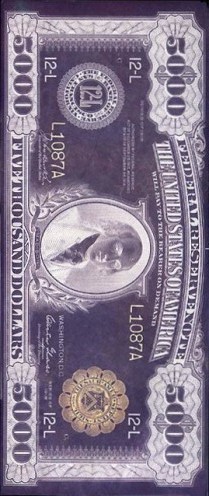Summing Up, Part 2
 In an article entitled ‘Democracy Isn’t Freedom’, Ron Paul wrote:
In an article entitled ‘Democracy Isn’t Freedom’, Ron Paul wrote:
Americans have been conditioned to accept the word “democracy” as a synonym for freedom, and thus to believe that democracy is unquestionably good.
The problem is that democracy is not freedom. Democracy is simply majoritarianism, which is inherently incompatible with real freedom. Our founding fathers clearly understood this, as evidenced not only by our republican constitutional system, but also by their writings in the Federalist Papers and elsewhere. James Madison cautioned that under a democratic government, “There is nothing to check the inducement to sacrifice the weaker party or the obnoxious individual.” John Adams argued that democracies merely grant revocable rights to citizens depending on the whims of the masses, while a republic exists to secure and protect pre-existing rights. Yet how many Americans know that the word “democracy” is found neither in the Constitution nor the Declaration of Independence, our very founding documents?
Now, an important thing to note here is that Paul is absolutely right. Most of the Founding Fathers did not envisage their new republic as a democracy. Indeed, Madison (as Chomsky is fond of reminding us) explicitly saw the task of designing the new government as one of designing a system which would protect “the minority of the opulent against the majority”. Chomsky also likes to quote John Jay as saying “The people who own the country ought to govern it”. As he writes in The Common Good,
Madison feared that a growing part of the population, suffering from the serious inequities of the society, would “secretly sigh for a more equal distribution of [life’s] blessings.” If they had democratic power, there’d be a danger they’d do something more than sigh. He discussed this quite explicitly at the Constitutional Convention, expressing his concern that the poor majority would use its power to bring about what we would now call land reform.
So he designed a system that made sure democracy couldn’t function. He placed power in the hands of the “more capable set of men,” those who hold “the wealth of the nation.” Other citizens were to be marginalized and factionalized in various ways, which have taken a variety of forms over the years: fractured political constituencies, barriers against unified working-class action and cooperation, exploitation of ethnic and racial conflicts, etc.
This is nothing surprising. We can go back to the dawn of bourgeois democracy in England, the Putney Debates, and see the bafflement which enveloped Ireton and the other Parliament Men when Rainsborough and the Levellers demanded that every man should have a say in the government that ruled over him, even if he lacked a “permanent interest” (i.e. property). Ireton and his fellow propertied gentlemen not only didn’t agree with such a concept – they couldn’t even comprehend it. It was utterly alien to them. The very radical ideas thrown up by the revolution they had led were now confronting them, shouted from the mouths of the common men they’d relied on as their muscle, and they might as well have been speaking a foreign language.…
